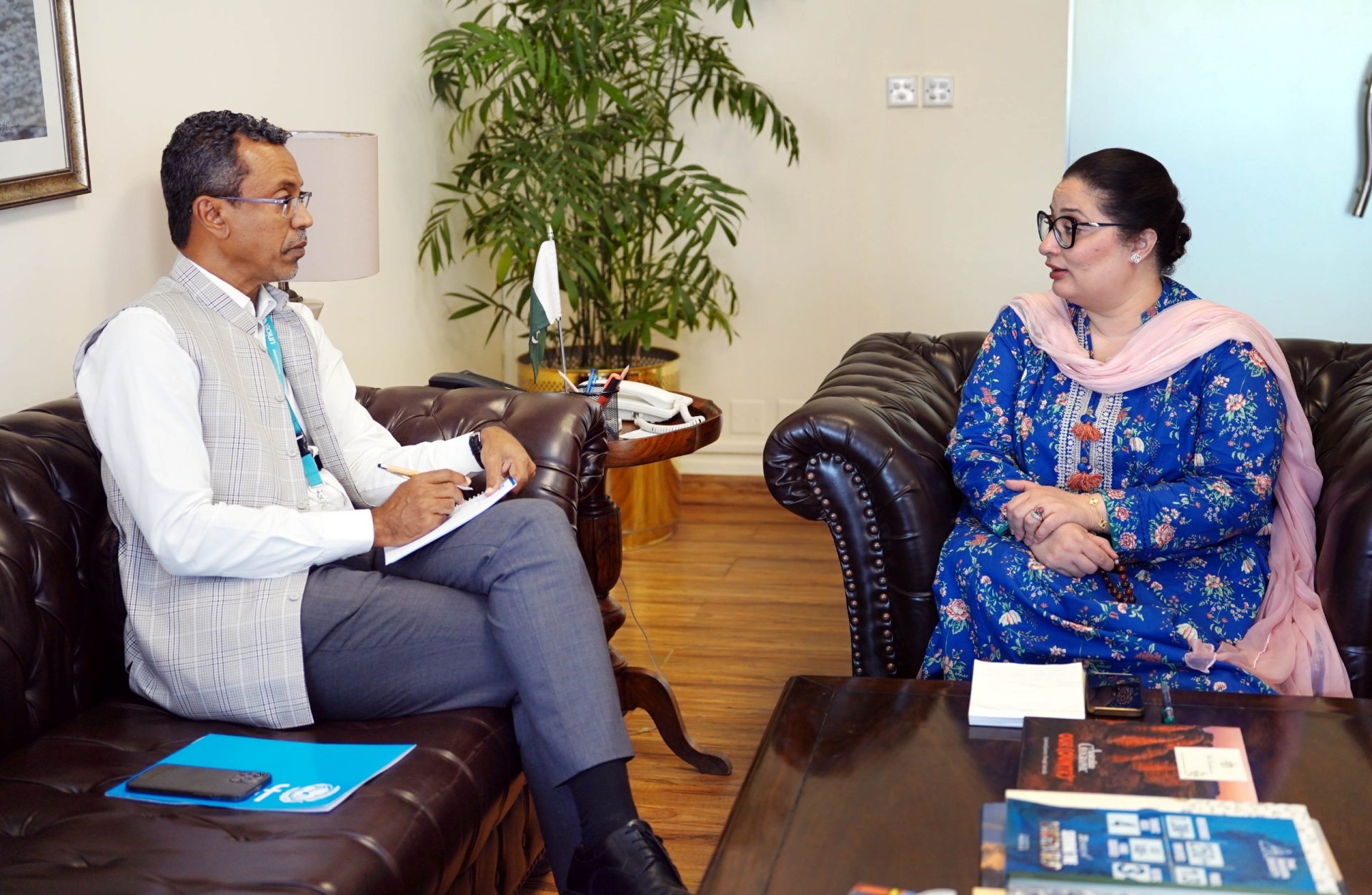 Representative of the United Nations Children’s Fund (UNICEF) in Pakistan, Abdullah A. Fadil called on Coordinator to Prime Minister on Climate Change Romina Khurshid Alam here on Wednesday to discuss boosting collaboration in protecting children from adverse impacts of climate change.
Representative of the United Nations Children’s Fund (UNICEF) in Pakistan, Abdullah A. Fadil called on Coordinator to Prime Minister on Climate Change Romina Khurshid Alam here on Wednesday to discuss boosting collaboration in protecting children from adverse impacts of climate change.
During the meeting held here on Wednesday, both sides pledged to work closely to protect children from devastating consequences of climate change-caused disasters, particularly floods and diseases, spokesperson of the Climate Change & Environmental Coordination Ministry Muhammad Saleem said
The ministry official said further that PM’s climate aide Romina Khurshid highlighted during the meeting with Unicef country representative in Pakistan that the children of Pakistan are increasingly vulnerable to the impacts of climate change, as extreme weather events such as floods, heat waves, droughts, glacial lake outburst floods and shifting rainfall patterns threaten their health, education, and overall well-being.
During the meeting, Romina Khurshid highlighted that as the world grapples with the intensifying climate risks, children in Pakistan are emerging as one of the most vulnerable groups and facing severe implications of various climate change-caused disasters, particularly floods, heat waves, the spokesperson Mr. Saleem added.
“What we have learned from recent climate change-caused disasters in Pakistan, is that the country, already one of the most climate-affected countries globally, is experiencing intensified impacts including extreme heat waves, flooding and shifting weather patterns. These climate disruptions are disproportionately affecting children, who are particularly sensitive to environmental changes due to their developing bodies and lower adaptive capacity,” remarked Ms. Alam.
The ministry official also said that during the meeting it was highlighted that addressing the climate vulnerability among children is not possible without targeted interventions particularly in health, education, water and sanitation sections, to protect future of the younger generation.
Suggesting sectoral interventions, the PM’s climate aide said that investing in healthcare infrastructure and services to address climate-induced health challenges, with a focus on maternal and child health for strengthening overall health systems; building resilient educational facilities and implementing strategies to ensure that children’s education is not disrupted by climate events so as to ensuring educational ccontinuity; supporting mental health by providing mental health services and psychosocial support to children affected by climate-related stress and trauma and; lastly building resilience of vulnerable communities by prioritising climate adaptation efforts in rural and low-income areas to protect the most at-risk children are inevitable policy measures that are needed for overall protection of the children under 15 from exacerbating impacts of climate change.
The Unicef’s country representative assured the PM’s climate aide Romina Khurshid Alam of his organisation’s all-out technical and non-technical support to the government’s efforts being taken for tackling climate vulnerability among children.
Editor: Kamran Raja